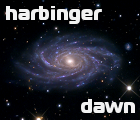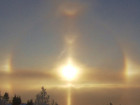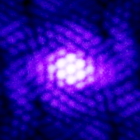|
Green and Red Oceans?
|
|
| Thobewill | Date: Monday, 16.07.2012, 02:02 | Message # 16 |
|
Observer
Group: Users
 United States
United States
Messages: 10
Status: Offline
| Quote (dontpanic) You guys haven't considered that it might be not water at all (H2O I mean)! Depending on the temperature of the planet, different gasses may be liquid. Although by human standards the kind of temperatures in oceans of such gasses would be extremely low, I think that it is probable that life would evolve even in these kind of extreme conditions.
What chemicals could these possibly be? The habitability zone by which space engine assigns life to planets is almost exclusively tied to the ability of liquid water to exist on the surface in some way. No chemicals that I know of that serve the same function of water are green or reddish-brown liquids between 0 and 100 C
|
| |
| |
| dontpanic | Date: Monday, 16.07.2012, 09:52 | Message # 17 |
 Space Pilot
Group: Users
 United States
United States
Messages: 113
Status: Offline
| I don't know, It's just a suggestion, that it doesn't have to be water, as most people were saying.
|
| |
| |
| BeBoBong | Date: Friday, 19.07.2013, 15:08 | Message # 18 |
|
Observer
Group: Newbies
 China
China
Messages: 2
Status: Offline
| Quote No chemicals that I know of that serve the same function of water are green or reddish-brown liquids between 0 and 100 C
brown......how about bromine? dark brown liquid
that would be a smelly terrible planet
|
| |
| |
| Nielz | Date: Thursday, 08.08.2013, 10:14 | Message # 19 |
|
Space Tourist
Group: Users
 Belgium
Belgium
Messages: 29
Status: Offline
| You have to keep the light spectrum of the star and the "pollutions" in the water in mind. The combination of our sun's light spectrum along with the composition of Earth's atmosphere and the presence of other chemical elements in the water is what makes it appear blue to us, here. It's impossible to say "This is the color of water - end of discussion".
|
| |
| |
| HarbingerDawn | Date: Thursday, 08.08.2013, 13:08 | Message # 20 |
 Cosmic Curator
Group: Administrators
 United States
United States
Messages: 8717
Status: Offline
| Quote (Nielz) The combination of our sun's light spectrum along with the composition of Earth's atmosphere and the presence of other chemical elements in the water is what makes it appear blue to us, here. It's impossible to say "This is the color of water - end of discussion".
No, water is intrinsically blue, unless you add a bunch of stuff to it to change its color (like a huge proliferation of certain life forms, which might tint it green or red). This has been discussed here before, so I'll just link you there: http://en.spaceengine.org/forum/22-238-25173-16-1367959223
All forum users, please read this!
My SE mods and addons
Phenom II X6 1090T 3.2 GHz, 16 GB DDR3 RAM, GTX 970 3584 MB VRAM
Edited by HarbingerDawn - Thursday, 08.08.2013, 13:11 |
| |
| |
| Nielz | Date: Sunday, 11.08.2013, 16:03 | Message # 21 |
|
Space Tourist
Group: Users
 Belgium
Belgium
Messages: 29
Status: Offline
| Quote (HarbingerDawn) No, water is intrinsically blue, unless you add a bunch of stuff to it to change its color (like a huge proliferation of certain life forms, which might tint it green or red). This has been discussed here before, so I'll just link you there: http://en.spaceengine.org/forum/22-238-25173-16-1367959223
Right, I understand.
But what if there is a watery planet around a differently coloured star? Say, a red dwarf. Surely water wouldn't look blue'ish if the star emits a distinctive red'ish light, no? And imagine if our own star was a different colour star, and we didn't know any different, then -unlike now- it would not be generally assumed to be blue, right?
|
| |
| |
| HarbingerDawn | Date: Sunday, 11.08.2013, 16:48 | Message # 22 |
 Cosmic Curator
Group: Administrators
 United States
United States
Messages: 8717
Status: Offline
| Water isn't blue because of the color of light hitting it, it's blue because it preferentially absorbs longer wavelength radiation. This is true regardless of what color of light is hitting it. If the light hitting it is reddish, then water would still appear bluer than more neutral colored things nearby, and would appear very dark since it absorbs the vast majority of color hitting it.
All forum users, please read this!
My SE mods and addons
Phenom II X6 1090T 3.2 GHz, 16 GB DDR3 RAM, GTX 970 3584 MB VRAM
|
| |
| |
| midtskogen | Date: Sunday, 11.08.2013, 17:21 | Message # 23 |
 Star Engineer
Group: Users
 Norway
Norway
Messages: 1674
Status: Offline
| The sky does add colour to the ocean. It looks pretty grey to me when it's overcast.
I don't doubt that the oceans would look blue from space if the atmosphere suddenly disappeared, but surely different?
NIL DIFFICILE VOLENTI

Edited by midtskogen - Sunday, 11.08.2013, 17:21 |
| |
| |
| HarbingerDawn | Date: Sunday, 11.08.2013, 17:30 | Message # 24 |
 Cosmic Curator
Group: Administrators
 United States
United States
Messages: 8717
Status: Offline
| We're talking about the color of the water itself, not reflections...
All forum users, please read this!
My SE mods and addons
Phenom II X6 1090T 3.2 GHz, 16 GB DDR3 RAM, GTX 970 3584 MB VRAM
|
| |
| |
| Joey_Penguin | Date: Sunday, 11.08.2013, 18:10 | Message # 25 |
 Pioneer
Group: Users
 United States
United States
Messages: 311
Status: Offline
| Maybe the green oceans are Jello, and the red oceans are pudding? 
Careful. The PLATT Collective has spurs.
|
| |
| |
| HarbingerDawn | Date: Sunday, 11.08.2013, 18:29 | Message # 26 |
 Cosmic Curator
Group: Administrators
 United States
United States
Messages: 8717
Status: Offline
| Quote (Joey_Penguin) Maybe the green oceans are Jello, and the red oceans are pudding?
Why not both be jello then? 
All forum users, please read this!
My SE mods and addons
Phenom II X6 1090T 3.2 GHz, 16 GB DDR3 RAM, GTX 970 3584 MB VRAM
|
| |
| |
| Salvo | Date: Sunday, 11.08.2013, 20:13 | Message # 27 |
 Star Engineer
Group: Local Moderators
 Italy
Italy
Messages: 1400
Status: Offline
| Towns would be made of jello too 

The universe is not required to be in perfect harmony with human ambition.
CPU: Intel Core i7 4770 GPU: ASUS Radeon R9 270 RAM: 8 GBs
(still don't know why everyone is doing this...)
Edited by Salvo - Sunday, 11.08.2013, 20:13 |
| |
| |
| Gondor2222 | Date: Monday, 12.08.2013, 04:27 | Message # 28 |
|
Space Pilot
Group: Users
 United States
United States
Messages: 92
Status: Offline
| A planet with oceans containing a quintillion liters of ground up skin and bones sounds like a great plot for a mixed horror-scifi story. I estimate this would require at least 75 quadrillion cows if the pig skin in the recipe is replaced with bovine skin.
Edited by Gondor2222 - Monday, 12.08.2013, 04:33 |
| |
| |
| dissembly | Date: Friday, 22.11.2013, 06:30 | Message # 29 |
 Observer
Group: Users
 Australia
Australia
Messages: 13
Status: Offline
| So we've established/agreed that water appears blue when you're looking through large quantities of it, and that the colour of the water can be very different depending on impurities. But I think people are being very dogmatic about what an ocean has to look like. We have a sample size of 1.
In fact, our sample size is even worse than "1", really, because we've only observed Earth's oceans for a geological instant. The ocean chemistry for the vast majority of the history of the Earth was different to today. Did this change the appearance of the oceans? We actually don't know. We don't even have agreement on the exact parameters for the proterozoic oceans, or how many different phases they went through.
We don't have empirical data on the question being asked, so it's simply not appropriate (scientifically) to say we know for sure they should always be blue.
Realistically, the colour of a planet's oceans could also depend upon the depth of those oceans, their interconnectedness, and the surrounding geology (as well as life, as people have said).
If your oceans are small and there is no appreciable flow between them, I actually think you're quite likely to see different colours in different bodies of water. If your oceans are on a world with extensive volcanism, maybe you would see a lot of strange colours from various ions in the system in high concentrations.
If your oceans are deep, that would increase the chance of them appearing blue due to scattering, sure - I'll give you that. But it's still just speculation.
If your atmosphere is thick, or full of particulates that change the colour of the light going through, the oceans might not look the same from space as they would look if you were standing on the surface shining a torchlight onto them.
I don't think the red and green oceans are "fantasy" oceans at all - they're just an acknowledgment that we don't know.
|
| |
| |
| Watsisname | Date: Friday, 22.11.2013, 07:33 | Message # 30 |
 Galaxy Architect
Group: Global Moderators
 United States
United States
Messages: 2613
Status: Offline
| I don't think anyone here is saying that oceans are always blue on different planets or on Earth at different times. It absolutely does depend on a number of things like you mention.
Just for example, Earth's early oceans would have been colored differently by the load of dissolved iron. We know this due to the presence of banded iron formations from when the atmosphere started accumulating oxygen, which caused the iron to oxidize and precipitate out in rocks. But we don't know exactly what the ocean chemistry was at the time and we can't really say for sure exactly what color it was and when.
Even today the ocean color isn't just blue, but varies in color from place to place depending on things like depth, chemistry, and organisms. Many of these features are understood rather well, and there's an entire branch of remote sensing that uses color data to study and monitor changes in the oceans.
The possibilities on other planets, with different atmospheres, chemistry, biology, etc, could indeed be extremely varied. 

|
| |
| |